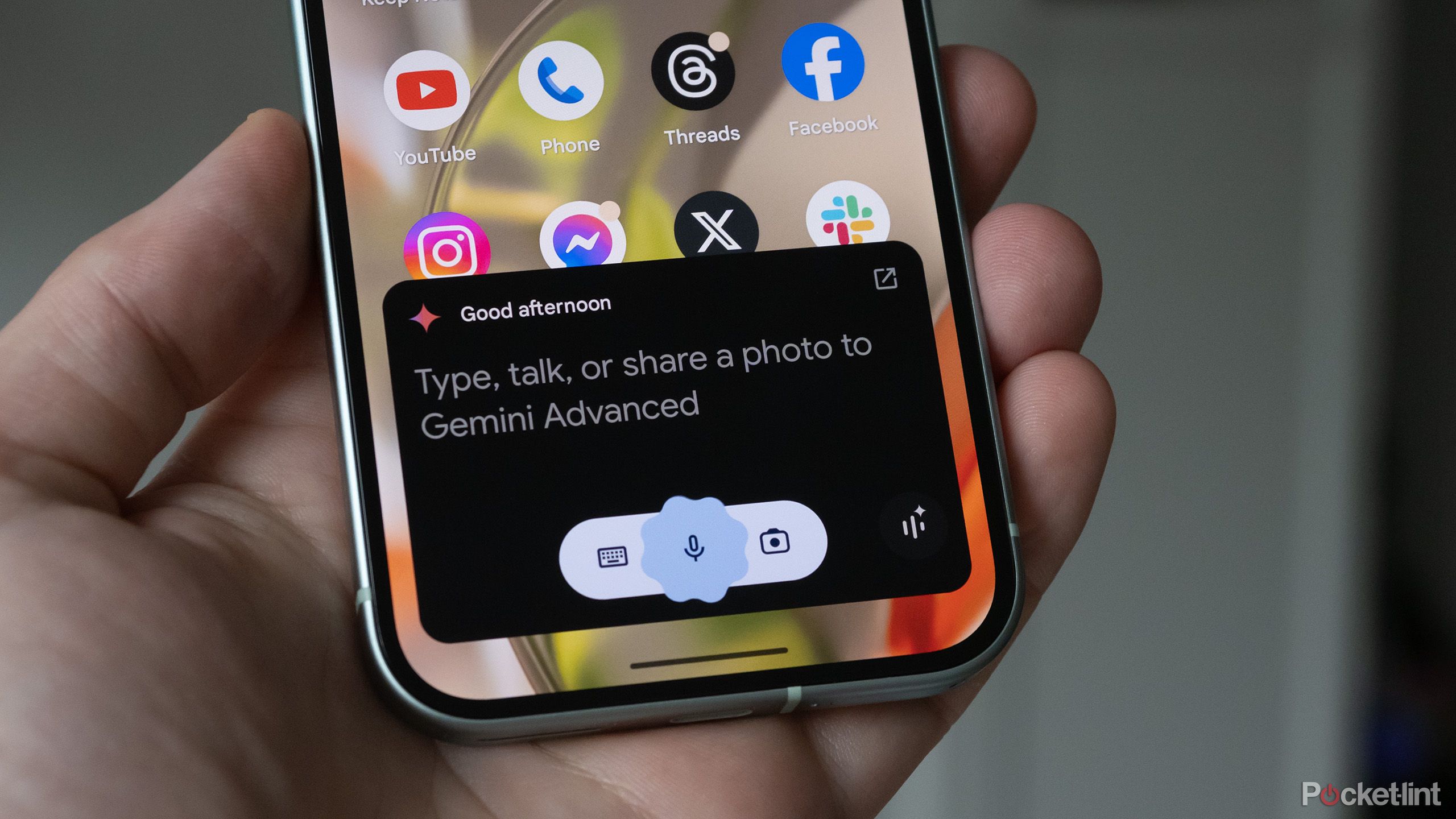Summary
- 2024 marked the integration of AI in daily life from devices to social media algorithms, making tasks more efficient.
- Multiple tech giants are investing in AI for search engines and browsers, including Google, Microsoft, Apple, and Arc.
- Nvidia leads in producing AI-focused processors, but competitors like AMD and Intel are catching up, indicating fierce industry competition.
Artificial intelligence isn’t going away any time soon. In fact, it’s really only just arrived. While much has been speculated about AI over the years, it has become commonplace for many technologies to rely on it. From large language models generating answers to your questions to computers built with hardware such as neural processing units to handle all the AI that you throw at it, technological advancements are focused on including AI in pretty much all facets of life.
2024 was the year when AI took center stage in your everyday life. From your laptop to your phone to your TV to your e-reader, AI plays a part in a lot of the features on your devices. So much so, that you may not even realize it. When you usually rely on algorithms to curate things for you on social media websites, AI features can take it all a step further by generating content for you.
While AI has probably made your life easier in many ways, there are also massive improvements that are needed going forward. As AI improves, more technology will rely on it. As AI improves, using it will make you smarter. The more it can do for you, the more innovative it can become. Whether that’s a good thing or a bad thing remains to be seen, but there’s no denying that AI is here to stay. Here’s why 2024 was the year of AI and what 2025 can bring.

Related
Are you actually consistently using AI tools?
Whether it’s Apple intelligence, Google’s Gemini, Microsoft’s Copilot, or ChatGPT (which just launched a ridiculous $200 tier), every big tech company is relentlessly pushing AI. There’s photo editing features like Apple Intelligence’s “Clean Up,” fun use cases like Apple’s Genmoji, questionably useful features like Recall — a Copilot feature that tracks everything you do — and, of course, every platform offers some sort of AI writing tool.In a way, there seems to be something for everyone, and the number of times I’ve been asked “is this AI thing is just hype” by friends and family feels countless at this point. My answer to that question is always that it’s somewhere in between, and it that it really depends on what you do for work and how you use your devices.With all of this in mind, I’m curious — do you actually find yourself consistently using AI tools on a daily basis? On my end, I find that I test them for work, but they don’t get integrated into my daily routine. The on
The race for AI kicks into high gear, and search is on the front line
So many options for search engines
Google has been the leading search engine for many years as well as the leading browser with Chrome. At the start of the year, its AI tool was known as Bard. But by February, it was rebranded as Gemini and put into its search and browser. But, it is not the only one in the landscape anymore and users have options. Microsoft’s Edge browser uses its AI-powered tool, Copilot. Apple’s Safari uses Apple Intelligence to generate search content. Arc Max uses Max, its AI assistant, to answer your questions more quickly.
Of course, you’re also able to go to ChatGPT on any web browser to have it help you. OpenAI announced SearchGPT in the summer, so that could be another option in the search engine game that you’ll see pop up. Expect to see more companies, particularly Meta, try their hand at search engines to highlight their AI tools in 2025.

Related
I tested the Arc browser against Chrome to see if it’s actually better
Arc is a browser with some significant potential, but is it worth switching over from Google Chrome?
Nvidia is leading the way on the hardware side
But others might be gaining ground
Nvidia/Pocket-lint
Nvidia rose to become the most valuable company in the world in 2024, valued at $3.3 trillion. The chipmaker is at the forefront of producing processors and chipsets that can handle large scale AI workloads. It was announced in early 2024 that its newest chip, Blackwell, would be coming. But it still hasn’t arrived yet and other chip companies are making up ground. AMD and Intel are putting their chips in PCs for use right now and are building ones with larger capacities to expand their market shares.
The Blackwell is expected to be the leading chip in the AI market once it is released. Production is said to be underway for release in 2025. In the meantime, other manufacturers are continuing to sell AI chips for small and large scale operations. It is possible that the delay could cause Nvidia to lose its standing as most valuable company in 2025.

Related
Nvidia’s new RTX 50-series GPUs may usher in next-gen gaming at CES 2025?
The RTX 5080 could be the real sweet spot for hardcore gamers.
AI is on your TV
Use it all the time for streaming
Amazon
Streaming is such a big part of most people’s entertainment. You want to sit back and watch something on TV? You are very likely to find something on a streaming service. Whether it’s Netflix, Prime Video, Hulu, or others, the streamers use AI every time you log in. From helping to customize your experience to recommending content, streamers have used AI to enhance viewings.
Prime Video started showing AI-generated recaps for some of its Prime Originals. The streamers all use AI to try and attract viewers based on their interests. This includes using different thumbnails for titles, depending on what the consumer might prefer. Searching for titles on these streamers is easier, as you don’t just have to type in the name of a show or movie. You can search based on what kind of show or search for adjectives that describe what you want to watch.
As AI improves, more technology will rely on it. As AI improves, using it will make you smarter.
Even if it’s not the streamers themselves that are using AI, the operating systems are. Samsung TV and Roku TV both use AI and machine learning to suggest content that will appeal to each consumer the most. By tracking data on the apps, they learn more about the viewer to make their experience customized. AI can also be used in the settings of the TV, adapting to the content that you’re watching to make it a more enjoyable viewing session. Expect more enhancements in 2025 and more streamers to use AI to help them land more consumers.

Related
How I turn my Roku TV into a literal work of art for free
Like Samsung’s The Frame TV, you can enhance your room and transform your Roku TV into piece of artwork.
AI is in your ears
Listen to music with the help of AI
There are plenty of music services that are available to consumers to aid them in enjoying some music, news, podcasts, radio, and other forms of listening. A lot of these streaming music services use AI to customize the experience for their users. Apple Music, Spotify, and others all focus on curating playlists that users may like based on their preferences. Not only are the playlists curated, but the artwork for the playlists are also generated artificially. Spotify even has an AI DJ to suggest songs to you while making it sound like you’re listening to a radio station.
It also isn’t just the streaming services that use AI when it comes to music. AI is also used inside headphones and earbuds for features such as active noise cancelation, specific user profiles for different people, and being able to use voice commands to talk to a virtual assistant. More artists will be using AI to create the music that you’ll find on streamers in 2025.

Related
I asked Spotify AI to give me a Halloween party playlist. Here’s how it went
Spotify AI cooked up a creepy Halloween playlist for me.
Your smart home got even smarter
It’s hard to not encounter some AI around your home
You name a smart home product and it probably had some kind of AI innovation in 2024. AI cameras that can track movement or identify a human versus an animal became more prominent. Thermostats that learn your prefrences and can actually sense what the temperature is in your house and adjust it according to your schedule are typical in homes. Having your TV talk to your smart plug and send a notification to your smart speaker not only relies on network connectivity but a seamless process for communication between devices.
Not all Matter-enabled devices are built with AI features in them. But the Matter protocol is based on AI.
If you’re able to talk to a device with your voice and control it, AI has something to do with it. The major players in smart home devices like Ring and Nest will continue to focus on AI features going forward. But more companies and manufacturers will put an emphasis on AI compatibility and use it to customize the experience for the users.















